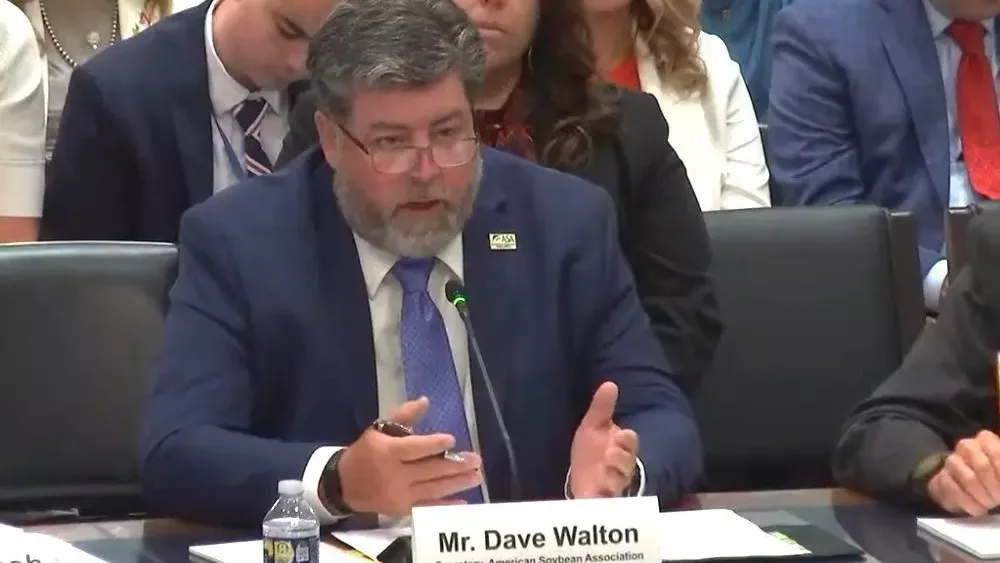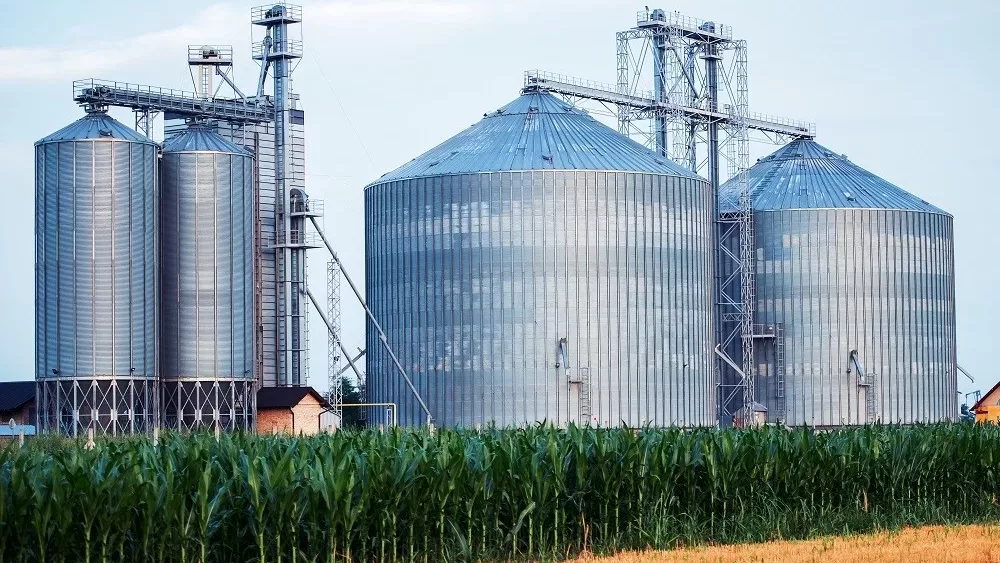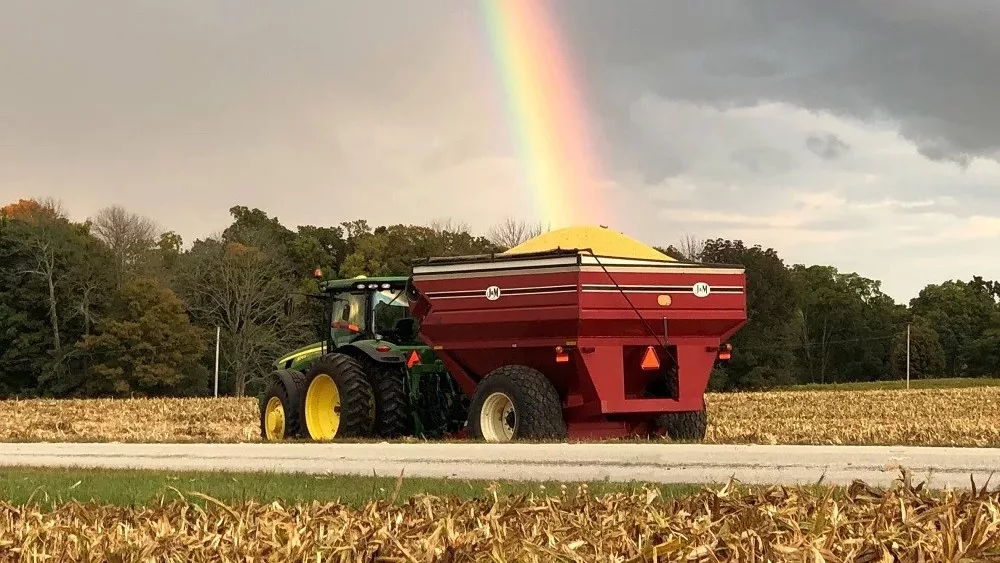Last week, Governor Whitmer announced that the Michigan Department of Food and Agriculture Investment Program (FAIP) has increased grants for the state’s farming and the diversity of the agribusiness industry.
“Michigan agriculture is something, I mean, I’m learning something new every day. It’s so diverse and so vast.”
The director for the Michigan Department of Agriculture and Rural Development (MDARD), Gary McDowell, explains why the increased funding is important for farmers, growers and consumers.
“This program has been around for a number of years, the thought behind it is, if we can help mainly businesses that are using food and ag, or food product, and our crops our farmers grow, then we can help our farmers by having markets closer to home, and stable markets for them.”
McDowell explains how the Pandemic prompted more investment.
“When we’ve seen how fragile our food supply system was, when people were walking into stores and seeing empty shelves, and we’re worried about our processing plants, cause COVID sickness, and how we were actually going be able to provide food. So, we’re looking at more local processing, more done in-state. So that’s what we’re looking to develop that. And right now, it’s just a great example of people in Michigan, our legislators, our governor especially, see how important food and ag is to Michigan, not just from an economic issue, but also of course for food security, making sure we know our food is safe, nutritious and helping our local economies and propping up our food supply system.”
The grants not only support corn and soybean growers, but dry beans, fruits and vegetables.
“Sarah, you raise a great point there. Michigan ag is so diversified, we’re second after California; we have over approximately 300 different commodities are grown in Michigan. Especially working with our state coalition, you know like the corn growers, or meat processors, the blueberries; talked about dry beans, which Michigan is a big producer of dry beans. We’re number one in the world in production.”
McDowell explains funding Michigan ag now, boosts the economy and employs more people.
“We have so much more potential. The last time we had numbers, Michigan ag contributed $104.7 billion to Michigan’s economy; employed over 805,000 people. So, you see the impact we’re having now. And we have so much more potential here in Michigan. We continue to grow, grow this business. And with these investments were making in the processors, which indirectly goes to our farmers. And with this money we can look into innovation, technology. That’s one of the real driving forces in agriculture right now. We’ve got to change; be able to do more with less, less people. And also looking at climate change, helping reduce climate change, but we’ve got to learn to adapt to it. We see the future in Michigan with the technology and innovation that we hope that will come from this investment fund.”
Farther into the future, McDowell says the time to invest is now.
“Ag is just like any other business. We’ve got to continue to be looking ahead, looking down the road. The governor talks about 2060, what do we want the state to look like? And I want the state, and I know she does, to be a strong agricultural state like it is now, even more so. We’ve got to be making those investments now. And we do have this opportunity with this additional federal money coming, mainly from the Jobs & Investment Act; that was another bipartisan bill. We have got to seize this opportunity to make sure that we make these long-term investments, so Michigan continues to grow and prosper and that Michigan ag will be a big part of that.”
Increased Funding, McDowell says, not only includes larger projects, but invests in rural parts of Michigan, for the first time.
“Another investment that was made, was the Office of Rural Development. She created this office in January by Executive Order. And this will help not just the farm community in rural Michigan, which of course is the anchor, one of the anchors of rural Michigan. But we’re looking at rural Michigan across the board. What we can do to make sure that we continue to prosper, but don’t fall behind in the rural part of the state, which a lot of us feel has happened in the past. So, this office will be focusing solely on the rural part of Michigan. We’ve never had this before in Michigan and we just see a lot of great opportunities to make sure that no matter where you live in Michigan, you won’t be left behind; doesn’t matter what your zip code is.”
State and federal funding is flowing in to assist emergency management money as well, to help mitigate predatory invaders, to protect our food and farms statewide.
“We’ve seen so many of these invasive species coming over that are a real threat to not just Michigan, but our agriculture across the country. These invasive species come in. They have no natural predators. And also, in the plants have no resistance to them. Right now, the spotted lantern fly, discovered in Michigan just recently, we feel we did a good job, because of all eyes on the ground out there, it was identified and sent it in to us and we responded, and we think we have it contained. We sure hope we do, we can never be 100% sure, so we got additional funding there to help protect Michigan farms, which of course is our food but also, it’s a big part of our economy in the state.”
Investments and grants have helped upgrade MSU too.
“Michigan State is a land grant college, they’re one of the finest, I’d say in the world. We work very closely with them. In the budget, they were able to get new dairy barns for the dairy program. And also, the greenhouses, they’ve fallen so far behind, just the technology again. They had milk houses that were set up for back in the ‘70s! Now how things have changed. Cause we’ll be able to continue to track students from all over, but especially here in Michigan in the ag sector, that can just be trained in the latest technology and innovations in agriculture right here. I got to thank again the governor and legislators for appropriating the money to MSU.”
McDowell says Michigan’s agriculture and natural resources, promise a great future.
“In Michigan here, we have so much potential. We have a great climate, still very conducive to agriculture, great soils, great farmers. And we have abundant water. I mean, if you look out west right now, where California and the west is struggling, it’s only going to continue to be more of a problem. In Michigan here, our agriculture is going to continue to keep growing. Our farmers in the state will continue to prosper.”
For more information on any of the several grants McDowell explained, go to:
MDARD Food and Agriculture Investment Program






